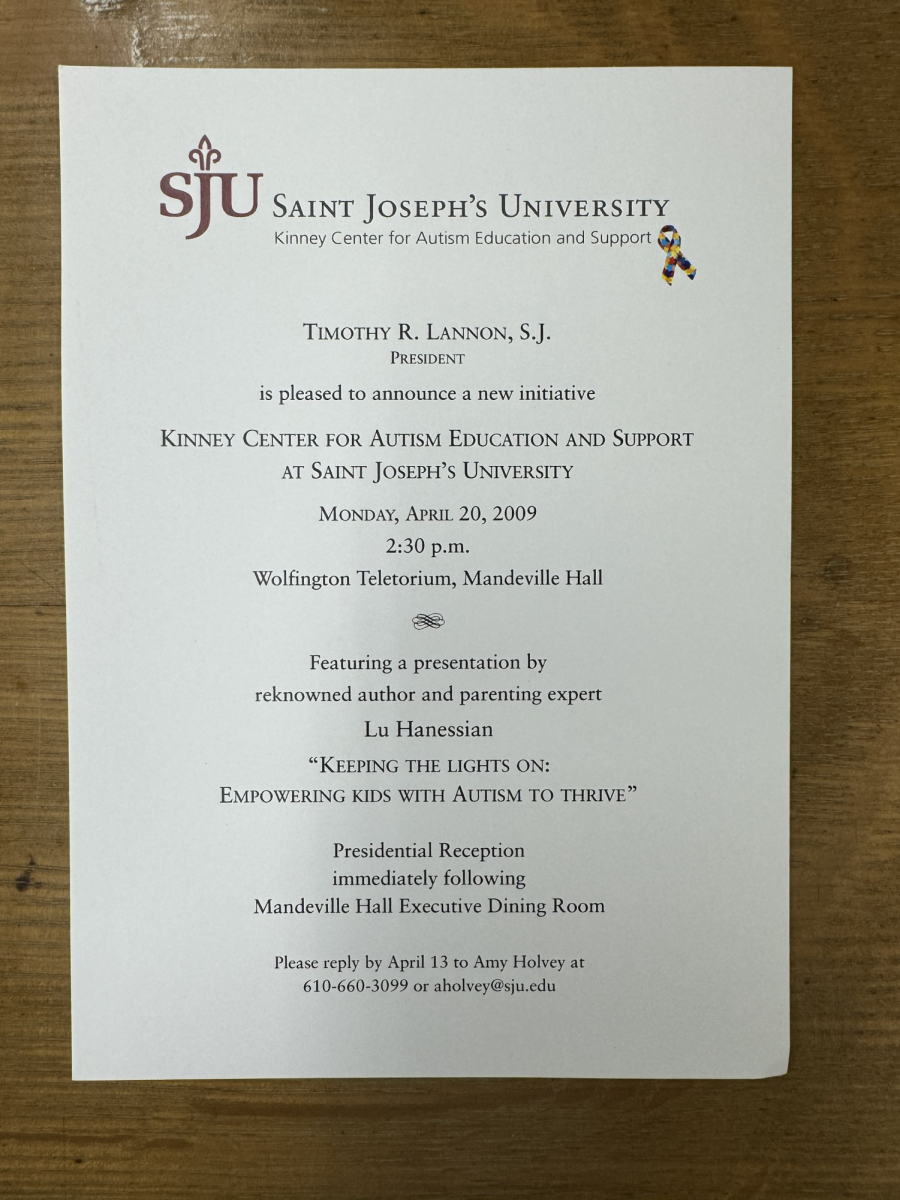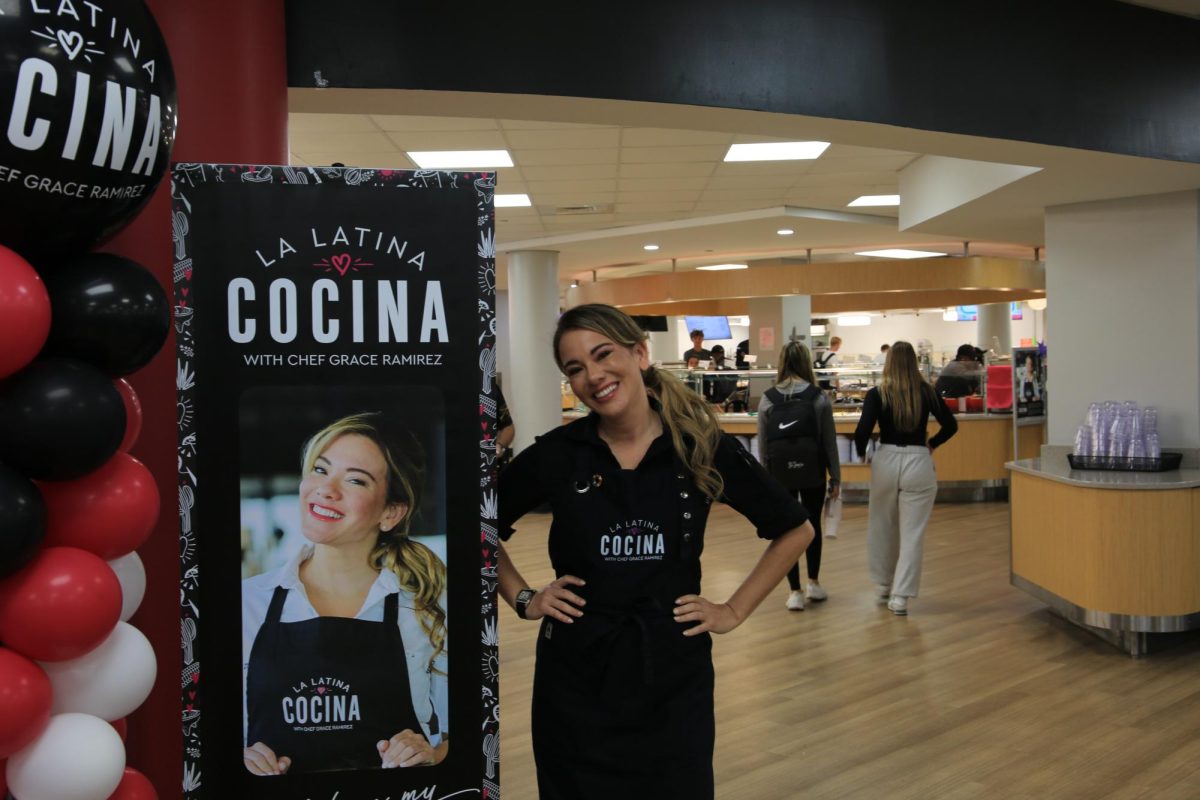In 2009, St. Joe’s invited the community to an event to announce the future opening of the Kinney Center for Autism Education and Support.
A formal invitation, sent by then-President Timothy Lannon, S.J., shared the Kinney Center’s announcement event, featuring a lecture by Lu Hanessian, an autism advocate, parent, award-winning writer and international speaker.
The 5-by-7-inch invitation, located in the St. Joe’s Archives Collection, is printed on white cardstock and features the autism puzzle ribbon. Community members were invited to gather at 2:30 p.m. April 20, 2009, in the Wolfington Teletorium in Mandeville Hall. The invitation includes Hanessian’s presentation, titled “Keeping the Lights On: Empowering Kids with Autism to Thrive,” and notice of a presidential reception to follow.
The Kinney Center, established to increase support and awareness for individuals with autism, has continued to evolve since its opening in October 2009. Recent milestones include receiving a $2 million gift from Daniel Hilferty ’78 and his wife, Joan Hilferty, in 2021 to further expand the center’s initiatives, and opening St. Albert’s Hall, a residence hall specifically designed for St. Joe’s students with autism, in 2022.
Theresa McFalls, executive director of the Kinney Center, began working for Kinney as the inaugural director of the ASPIRE program, the university’s signature support program for St. Joe’s students with autism, when it launched in 2012. McFalls wrote in response to written questions from The Hawk that Kinney “has stayed true to its mission” since its founding.
All told, McFalls said the Kinney Center has served 1,268 families and trained 675 Kinney SCHOLARS since it began. Additionally, Camp Kinney, the center’s summer camp designed to accommodate children with autism, celebrated its 15th year this past summer.
“What sticks out most to me is that the center has been able to grow with families,” McFalls wrote. “What started as youth programming (summer camp and youth social skills) has now grown into transitional, adult, and college programming. We have also expanded our training to community partners and other universities.”















































